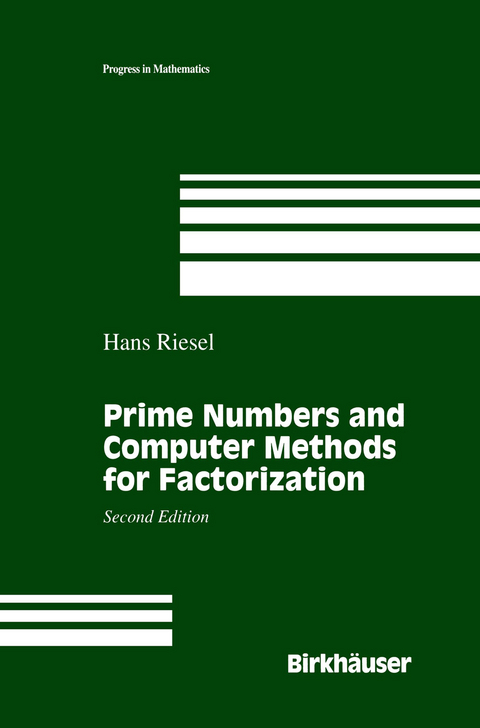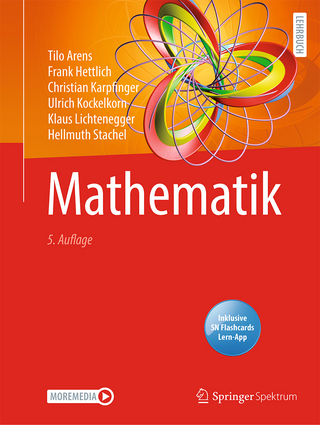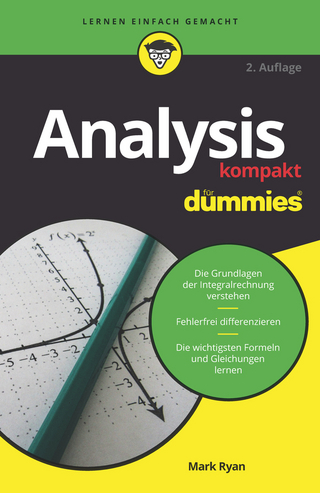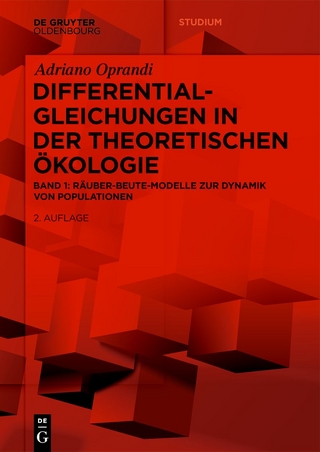
Prime Numbers and Computer Methods for Factorization
Springer-Verlag New York Inc.
978-1-4612-6681-5 (ISBN)
Hans Riesel’s highly successful first edition of this book has now been enlarged and updated with the goal of satisfying the needs of researchers, students, practitioners of cryptography, and non-scientific readers with a mathematical inclination. It includes important advances in computational prime number theory and in factorization as well as re-computed and enlarged tables, accompanied by new tables reflecting current research by both the author and his coworkers and by independent researchers.
The book treats four fundamental problems: the number of primes below a given limit, the approximate number of primes, the recognition of primes and the factorization of large numbers. The author provides explicit algorithms and computer programs, and has attempted to discuss as many of the classically important results as possible, as well as the most recent discoveries. The programs include are written in PASCAL to allow readers to translate the programs into the language of their own computers.
The independent structure of each chapter of the book makes it highly readable for a wide variety of mathematicians, students of applied number theory, and others interested in both study and research in number theory and cryptography.
1. The Number of Primes Below a Given Limit.- 2. The Primes Viewed at Large.- 3. Subtleties in the Distribution of Primes.- 4. The Recognition of Primes.- 5. Classical Methods of Factorization.- 6. Modem Factorization Methods.- 7. Prime Numbers and Cryptography.- Appendix 1. Basic Concepts in Higher Algebra.- Modules.- Euclid’s Algorithm.- The Labor Involved in Euclid’s Algorithm.- A Definition Taken from the Theory of Algorithms.- A Computer Program for Euclid’s Algorithm.- Reducing the Labor.- Binary Form of Euclid’s Algorithm.- Groups.- Lagrange’s Theorem. Cosets.- Abstract Groups. Isomorphic Groups.- The Direct Product of Two Given Groups.- Cyclic Groups.- Rings.- Zero Divisors.- Fields.- Mappings. Isomorphisms and Homomorphisms.- Group Characters.- The Conjugate or Inverse Character.- Homomorphisms and Group Characters.- Appendix 2. Basic Concepts in Higher Arithmetic.- Divisors. Common Divisors.- The Fundamental Theorem of Arithmetic.- Congruences.- Linear Congruences.- Linear Congruences and Euclid’s Algorithm.- Systems of Linear Congruences.- Carmichael’s Function.- Carmichael’s Theorem.- Appendix 3. Quadratic Residues.- Legendre’s Symbol.- Arithmetic Rules for Residues and Non-Residues.- The Law of Quadratic Reciprocity.- Jacobi’s Symbol.- Appendix 4. The Arithmetic of Quadratic Fields.- Appendix 5. Higher Algebraic Number Fields.- Algebraic Numbers.- Appendix 6. Algebraic Factors.- Factorization of Polynomials.- The Cyclotomic Polynomials.- Aurifeuillian Factorizations.- Factorization Formulas.- The Algebraic Structure of Aurifeuillian Numbers.- Appendix 7. Elliptic Curves.- Cubics.- Rational Points on Rational Cubics.- Homogeneous Coordinates.- Elliptic Curves.- Rational Points on Elliptic Curves.- Appendix 8. Continued Fractions.- What Isa Continued Fraction?.- Regular Continued Fractions. Expansions.- Evaluating a Continued Fraction.- Continued Fractions as Approximations.- Euclid’s Algorithm and Continued Fractions.- Linear Diophantine Equations and Continued Fractions.- A Computer Program.- Continued Fraction Expansions of Square Roots.- Proof of Periodicity.- The Maximal Period-Length.- Short Periods.- Continued Fractions and Quadratic Residues.- Appendix 9. Multiple-Precision Arithmetic.- Various Objectives for a Multiple-Precision Package.- How to Store Multi-Precise Integers.- Addition and Subtraction of Multi-Precise Integers.- Reduction in Length of Multi-Precise Integers.- Multiplication of Multi-Precise Integers.- Division of Multi-Precise Integers.- Input and Output of Multi-Precise Integers.- A Complete Package for Multiple-Precision Arithmetic.- A Computer Program for Pollard’s rho Method.- Appendix 10. Fast Multiplication of Large Integers.- The Ordinary Multiplication Algorithm.- Double Length Multiplication.- Recursive Use of Double Length Multiplication Formula.- A Recursive Procedure for Squaring Large Integers.- Fractal Structure of Recursive Squaring.- Large Mersenne Primes.- Appendix 11. The Stieltjes Integral.- Functions With Jump Discontinuities.- The Riemann Integral.- Definition of the Stieltjes Integral.- Rules of Integration for Stieltjes Integrals.- Integration by Parts of Stieltjes Integrals.- The Mean Value Theorem.- Applications.- Tables. For Contents.- List of Textbooks.
| Erscheint lt. Verlag | 30.9.2012 |
|---|---|
| Reihe/Serie | Progress in Mathematics ; 126 |
| Zusatzinfo | XVI, 464 p. |
| Verlagsort | New York |
| Sprache | englisch |
| Maße | 155 x 235 mm |
| Themenwelt | Mathematik / Informatik ► Mathematik ► Analysis |
| Mathematik / Informatik ► Mathematik ► Arithmetik / Zahlentheorie | |
| Mathematik / Informatik ► Mathematik ► Wahrscheinlichkeit / Kombinatorik | |
| ISBN-10 | 1-4612-6681-5 / 1461266815 |
| ISBN-13 | 978-1-4612-6681-5 / 9781461266815 |
| Zustand | Neuware |
| Haben Sie eine Frage zum Produkt? |
aus dem Bereich


